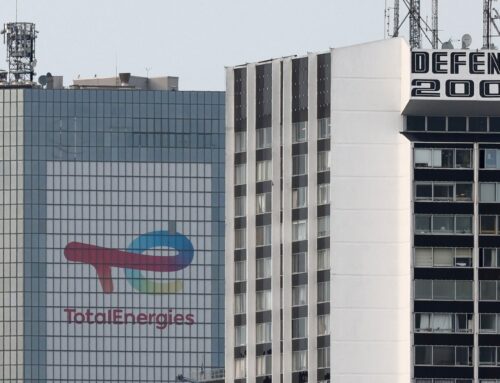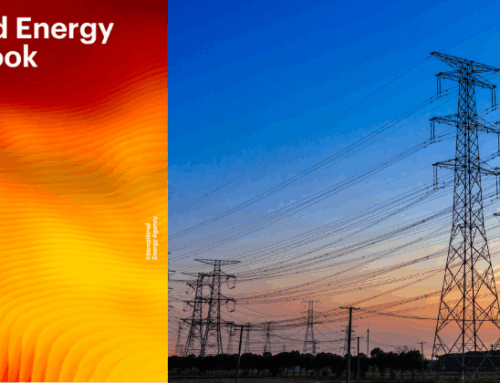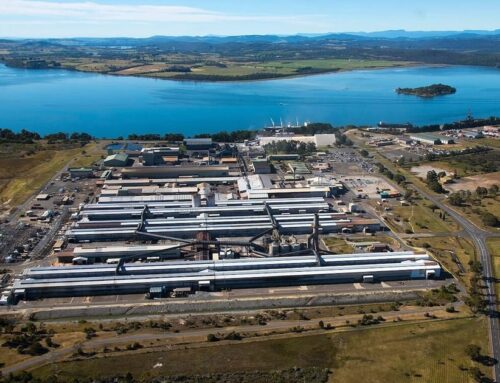Supply boom in cheaper renewables will seal end of fossil fuel era, says IEA
November 12, 2025
Renewables will grow faster than any major energy source in the next decade, according to the world’s energy watchdog, making the transition away from fossil fuels “inevitable”, despite a green backlash in the US and parts of Europe.
The world is expected to build more renewable energy projects in the next five years than has been rolled out over the last 40, according to the flagship annual report from the International Energy Agency (IEA).
The report shows that this increase in renewable energy could meet nearly all the world’s growing appetite for electricity, which is on track to rise by 40% over the next decade, fuelled by the growing demand for electric cars, heating, cooling and to power AI datacentres.
It also points to a “renaissance” for nuclear power, driven by major tech companies seeking a steady supply of low-carbon electricity to power their datacentres. The IEA has predicted that global investment in datacentres will reach $580bn in 2025, surpassing the $540bn being spent on global oil supply.
The rise in low-carbon electricity is expected to seal the transition away from the fossil fuel era, despite calls from the Trump administration to retreat from green investments in favour of drilling for oil and gas.
David Tong, a campaigner at Oil Change International, said the IEA’s report had confirmed that “no single country can stop the energy transition”. He called on world leaders gathered at Belém in Brazil for the UN’s Cop30 climate talks to reject “Donald Trump’s dystopian future” in favour of a “fast, fair, and funded fossil fuel phase-out”.
The IEA’s findings are expected to embolden leaders who plan to use the Cop30 talks to push for progress on reaching the global target to triple renewable energy by 2030 and transition away from fossil fuels, agreed to at Cop28 in Dubai.
The Paris-based agency has reportedly come under pressure from US Republicans to use its flagship report to present a more positive future for the fossil fuel industry than in previous forecasts. In response, the IEA reintroduced a scenario from previous reports that offers “a cautious perspective” on the speed of the energy transition.
Dave Jones, the chief analyst of Ember, a thinktank, said this scenario’s assumptions appeared to underestimate the rollout of electric vehicles (EVs), leading to higher forecasts for the consumption of oil than in the IEA’s central scenario. However, a rapid expansion of renewables was “inevitable”, he added.
“Renewables and electrification will dominate the future – and all fossil-importing nations will gain the most by embracing them,” he said.
The IEA found that in all of the scenarios it modelled that renewables would grow faster than any other major energy source, led by a surge in cheap solar power across regions including the Middle East and Asia, which have abundant sunshine.
Trump’s decision to pull support for the US renewable energy sector means that in the IEA’s central scenario the US will have about 30% less solar power by 2035 than forecast in last year’s report. But at a global level renewables will continue their “rapid expansion”, it said.
Jones added: “There’s a revolution happening right now and it’s in renewables and electrification. The evidence on the ground is overwhelming – EV sales are taking off in many emerging countries, solar is permeating even through the Middle East.
“Fossil fuel importing countries are still reeling from the energy crisis and are trying to urgently reduce their reliance on expensive and insecure fossil fuels. The faster [transition] pathways offer a cheaper, more efficient and more secure energy system, while the slower pathways raise global temperatures and bloat energy demand with inefficient burning of fossil fuels.”
Mariana Paoli, the head of advocacy for Christian Aid, said wealthy nations should use Cop30 to commit to ending fossil fuel investment and boosting climate finance.
“The IEA’s report confirms what many climate-vulnerable communities have known for years: the fossil fuel era is ending but governments are still dragging their feet when it comes to building the clean energy systems that need to replace it. Oil and coal are peaking, renewables are surging, yet public money continues to flow into new fossil fuel projects that the IEA itself says we simply don’t need,” Paoli said.
Search
RECENT PRESS RELEASES
Related Post




